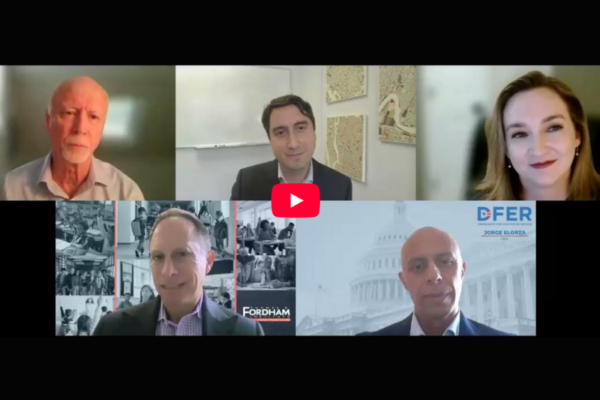The Trump administration’s newly passed federal tax credit scholarship program could dramatically reshape the education landscape, providing families with potentially billions of dollars in funding for private schooling, beginning in 2027. But states must opt into the Trump program, raising a host of policy and political questions.
FutureEd hosted a timely conversation about what the program could mean for students, families, and the future of elementary and secondary education. The discussion explores what we know about the program and what’s still undecided, how it could work in practice, the political challenges it poses to state leaders, and what we can learn from states’ past experiences with private school choice programs. Moderated by FutureEd Director Thomas Toch, the conversation features:
- Rachel Canter, director of education policy at the Progressive Policy Institute
- Jorge Elorza, CEO of Democrats for Education Reform
- Michael J. Petrilli, president of the Thomas B. Fordham Institute
- Jon Valant, director of the Brown Center on Education Policy at the Brookings Institution
Additional Resources
- Directional Signals: A New Analysis of the Evolving Private School Choice Landscape (FutureEd)
- What States Can Teach Us About Trump’s New Federal School Choice Program (FutureEd)
- A New Compact for Educational Excellence (Progressive Policy Institute)
- Universal school choice programs mostly benefit the wealthy unless policymakers act to prevent it (Brookings)
- The OBBBA’s tax-credit scholarship program is a mess that might be worth opting into anyway (Brookings)
- How to persuade Democratic governors to opt into Trump’s education tax credit (Fordham Institute)
